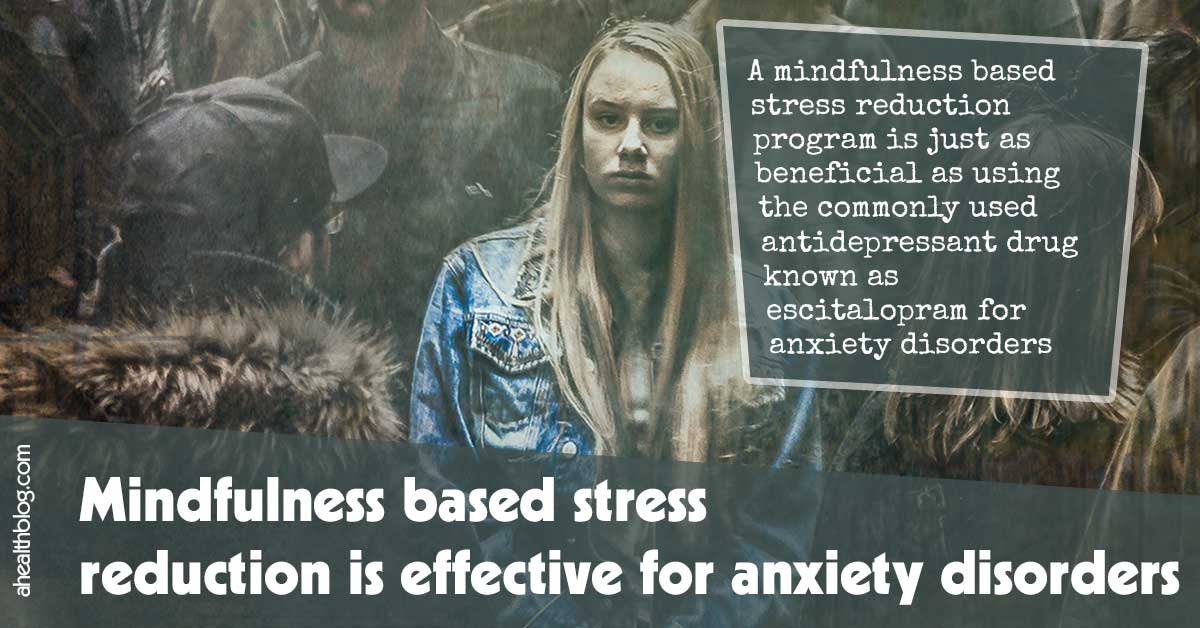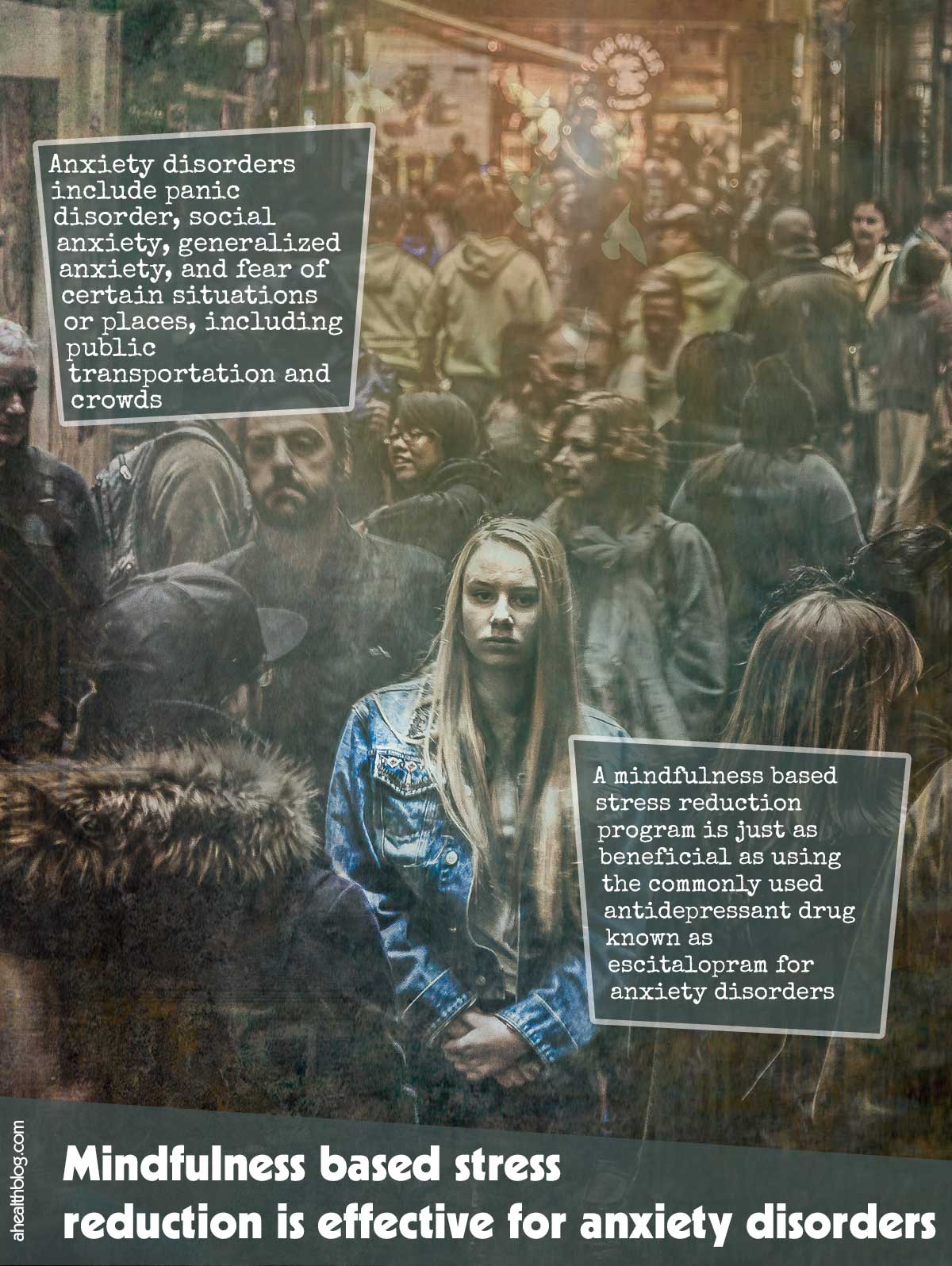According to the results of a randomized study, a mindfulness-based stress reduction program was just as beneficial as using the commonly used antidepressant drug known as escitalopram for individuals having anxiety disorders.1✅ JOURNAL REFERENCE
DOI: 10.1001/jamapsychiatry.2022.3679
A huge benefit of mindfulness meditation is that a clinical degree isn’t required for training somebody to be a facilitator. Sessions can also be carried out away from a medical setting, for example at a community center or school.
Distressing anxiety disorders include panic disorder, social anxiety, generalized anxiety, and fear of certain situations or places, including public transportation and crowds, which can result in an increased risk for distress, disability, and suicide, and so are generally treated in psychiatric treatment centers.
Currently prescribed medications for the conditions can be quite effective, but a lot of individuals either don’t respond to them, have difficulties acquiring them, or find the adverse effects such as drowsiness, sexual dysfunction, and nausea as an obstacle to taking them regularly.
Standardized mindfulness-based treatments, which include mindfulness-based stress reduction, can reduce anxiety, but the treatments hadn’t been examined compared to effective anti-anxiety medications before this study.
The researchers enlisted 276 individuals who were randomly allocated to either escitalopram or mindfulness-based stress reduction. Mindfulness-based stress reduction was provided every week for 8 weeks by way of 2.5-hour classes in-person, a day-long weekend retreat class over the 5th or 6th week, and 45-minute home practice exercises every day.
Symptoms of anxiety were evaluated before treatment and again after 8 weeks, together with post-treatment evaluations at 12 and 24 weeks following enrollment. The evaluations were carried out in a blinded manner, the evaluators didn’t know if the individuals they were evaluating had been given mindfulness-based stress reduction or the medication.
102 individuals had undertaken mindfulness-based stress reduction after the trial and 106 had finished their medication course. The individuals were relatively young, with an average age of 33, and included 156 women, which made up 75% of the participants, reflecting the prevalence of the disease in the U.S.
The researchers made use of a validated assessment measure for rating the anxiety symptom severity across all of the disorders using a scale of 1 to 7, with severe anxiety being 7.
Both groups experienced a reduction in their anxiety symptoms, a 1.35 point average reduction for mindfulness-based stress reduction and 1.43 point average reduction for the medication, which was a statistically equivalent outcome, going down from an average of about 4.5 for both, which means a significant 30% or so decrease in anxiety severity.




